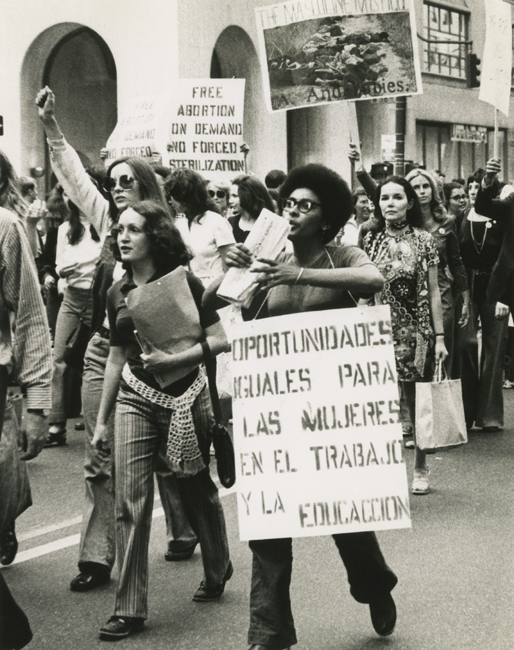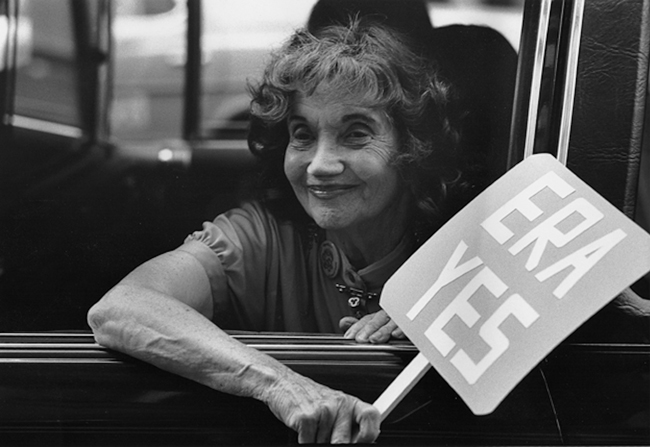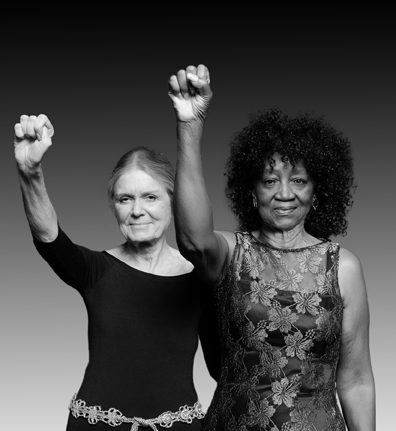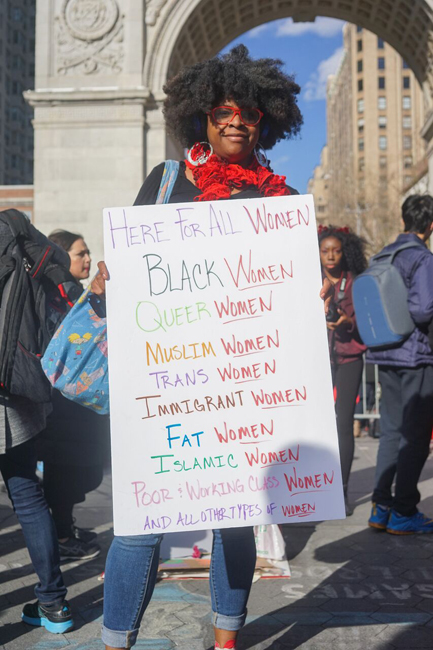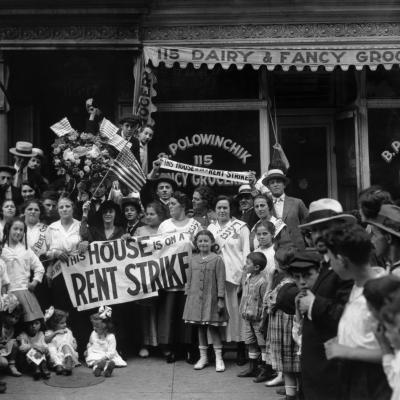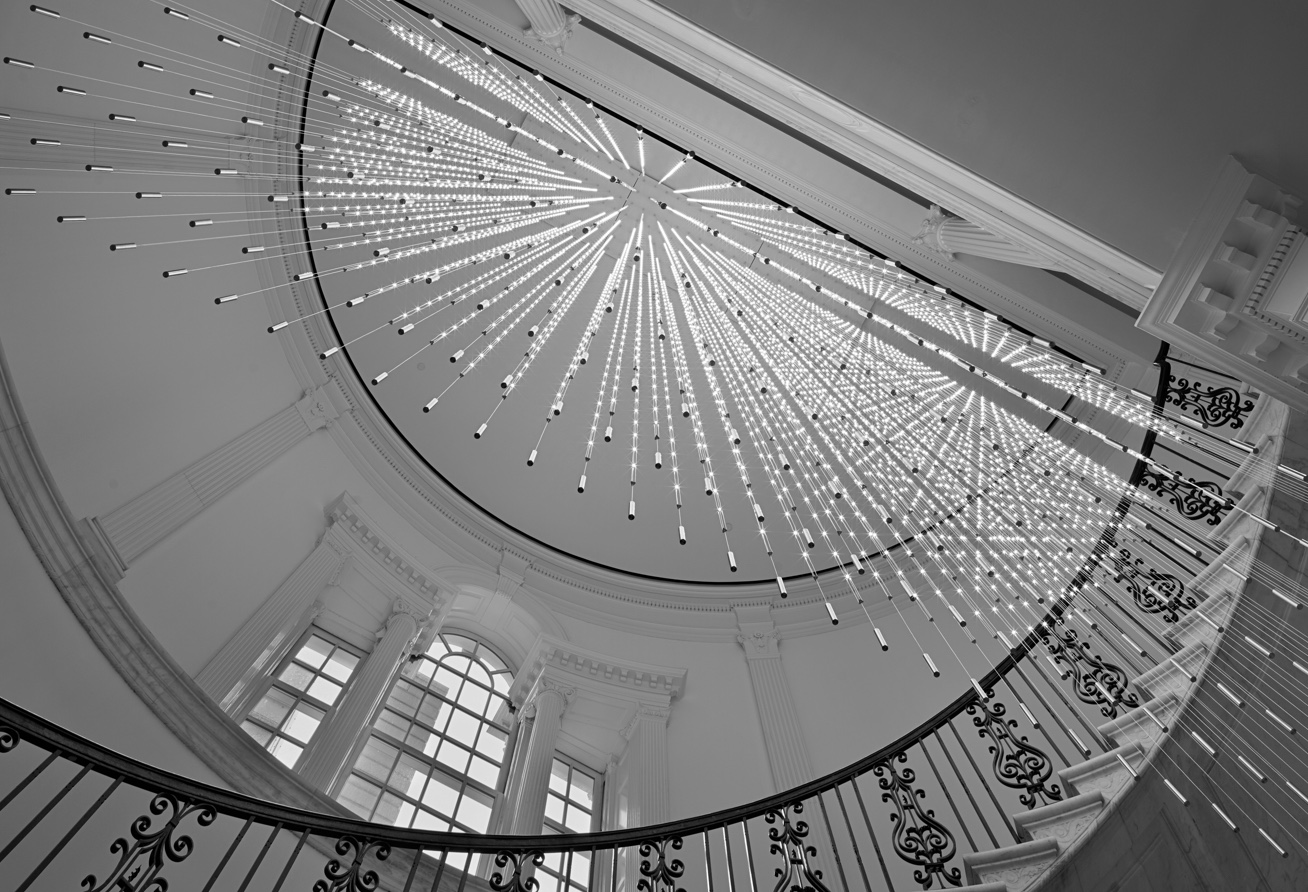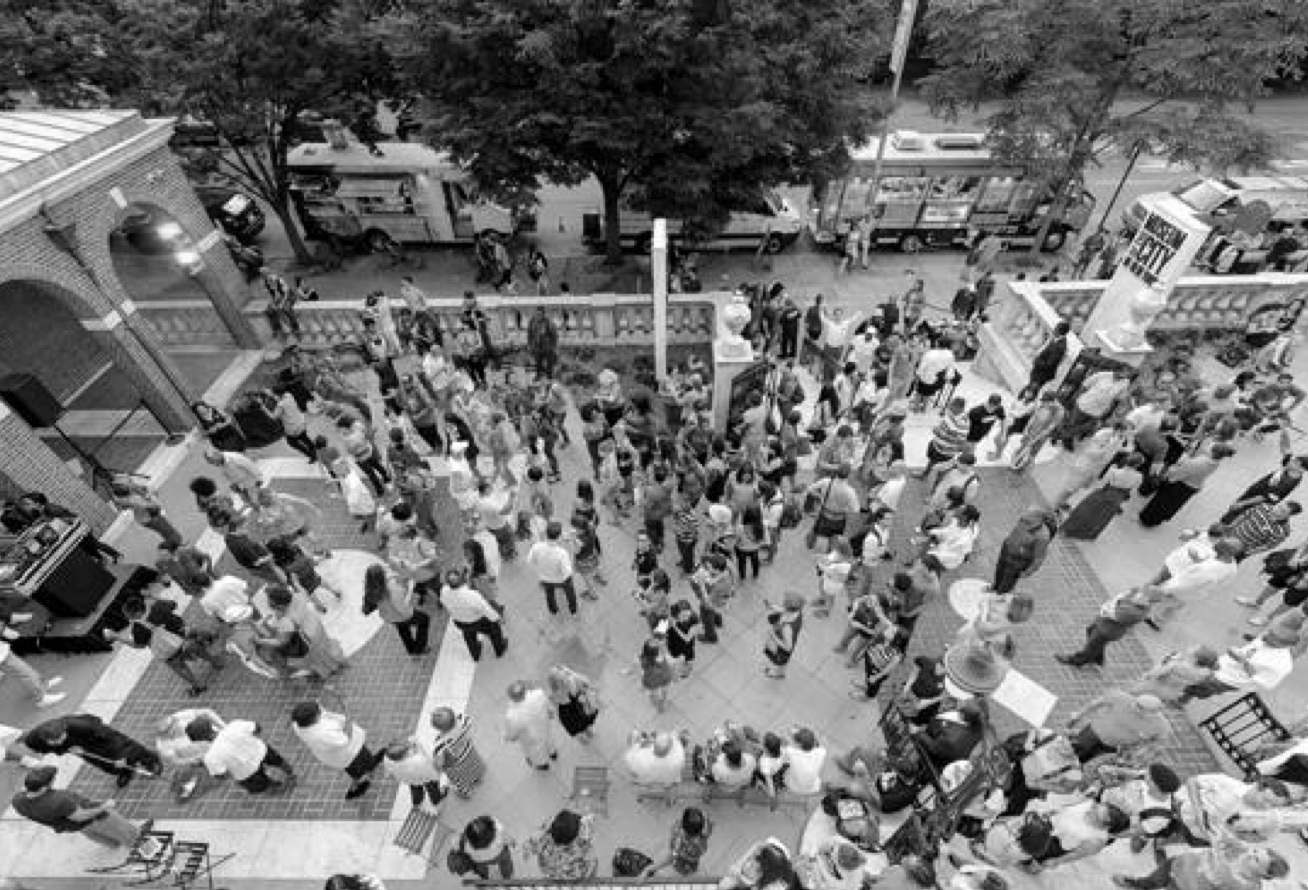Reconsidering Feminist Waves through the Strike for Women’s Equality March
Monday, August 26, 2019 by
“We’re a movement now,” proclaimed feminist Kate Millett to tens of thousands of women who marched on Fifth Avenue in Manhattan on August 26, 1970—the largest U.S. women’s march up to that point—to demand full gender equality. It was the 50th anniversary of the passage of woman suffrage, and the Women’s Strike for Equality March, led by the National Organization for Women (NOW), was calling for new rights: free childcare, equal opportunities in education and employment, and access to abortion. The women’s movement had long roots, but by 1970, it had arrived.
 The strike was called for by Betty Friedan, the Queens-based author of The Feminine Mystique and the first president of NOW. Friedan urged work stoppages for “everyone who is doing a job for which a man would be paid more,” as well as women whose labor at home was unpaid. Among the women who spoke alongside Millett and Friedan were Eleanor Holmes Norton, who had just sued Newsweek for gender discrimination on behalf of 46 women employees, and Congresswoman Bella Abzug, also known as “Battling Bella.” Alice Paul, the suffragist who first urged the adoption of an Equal Rights Amendment for women in 1923, also attended.
The strike was called for by Betty Friedan, the Queens-based author of The Feminine Mystique and the first president of NOW. Friedan urged work stoppages for “everyone who is doing a job for which a man would be paid more,” as well as women whose labor at home was unpaid. Among the women who spoke alongside Millett and Friedan were Eleanor Holmes Norton, who had just sued Newsweek for gender discrimination on behalf of 46 women employees, and Congresswoman Bella Abzug, also known as “Battling Bella.” Alice Paul, the suffragist who first urged the adoption of an Equal Rights Amendment for women in 1923, also attended.
In 1968 The New York Times Magazine had published an article coining the term “the Second Feminist Wave.” While women in the 1960s and ’70s invoked the “first-wave” suffrage generation, they also built on the continuous work of New York women who emerged from left-wing movements of the 1930s. This included Friedan, who had worked with organized labor, Florynce “Flo” Kennedy, a lawyer and civil rights activist, and the pioneering Pauli Murray, who spent formative years in New York paving the way for her subsequent work adding “sex” as a protected category of the Civil Rights Act of 1964, and helping to found NOW.
 They were joined by younger activists drawn to New York’s history of women’s political organizing, inspired by the civil rights movement, and energized by an openly feminist agenda. This included writers and activists Gloria Steinem and Dorothy Pitman Hughes, Frances Beale of the Third World Women’s Alliance, and Carol Hanisch, who coined the phrase “the personal is political.” New York women allied behind the cause of gender equality, even as they often split over questions of race, class, and sexual orientation. The participants’ diverse identities, goals, and anger over their treatment as women sometimes produced conflict and dissent, but they also created a more multifaceted women’s movement than is often remembered—one that has paved the way for the surge in women’s activism today.
They were joined by younger activists drawn to New York’s history of women’s political organizing, inspired by the civil rights movement, and energized by an openly feminist agenda. This included writers and activists Gloria Steinem and Dorothy Pitman Hughes, Frances Beale of the Third World Women’s Alliance, and Carol Hanisch, who coined the phrase “the personal is political.” New York women allied behind the cause of gender equality, even as they often split over questions of race, class, and sexual orientation. The participants’ diverse identities, goals, and anger over their treatment as women sometimes produced conflict and dissent, but they also created a more multifaceted women’s movement than is often remembered—one that has paved the way for the surge in women’s activism today.
Visit the new section of our ongoing exhibition Activist New York on the women’s liberation movement of the 1960s and 1970s at the Museum of the City of New York. And stay tuned for more programs in 2020, the centennial of the 19th amendment governing women’s ability to vote.
